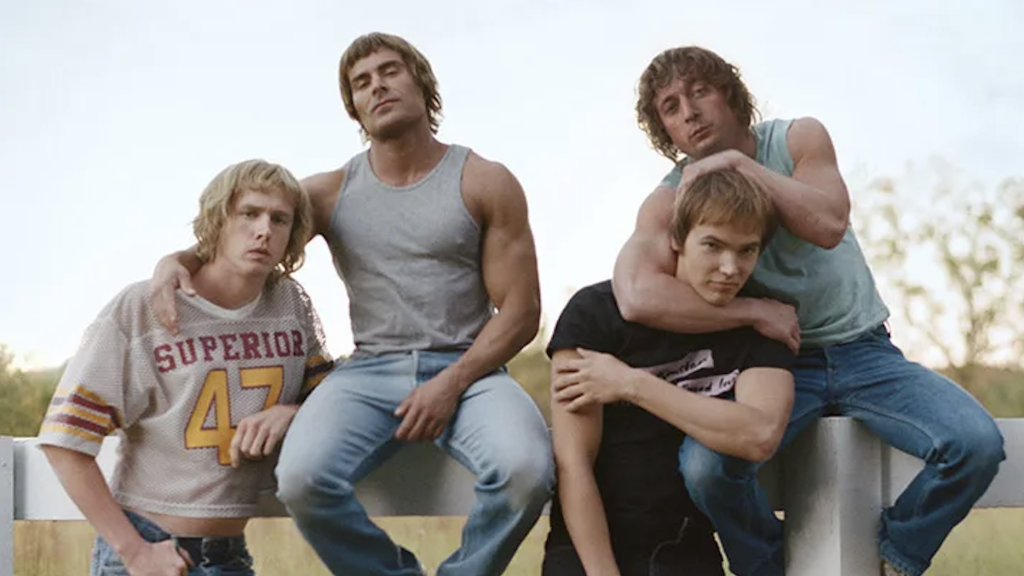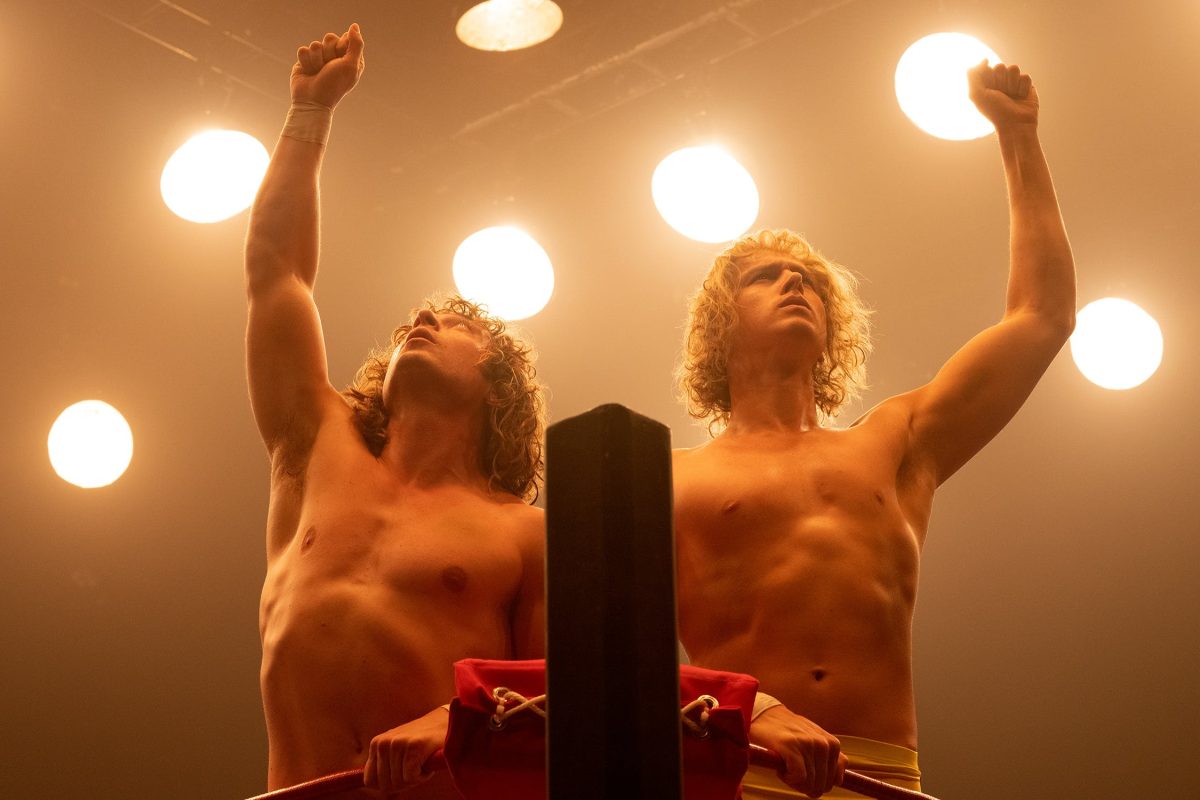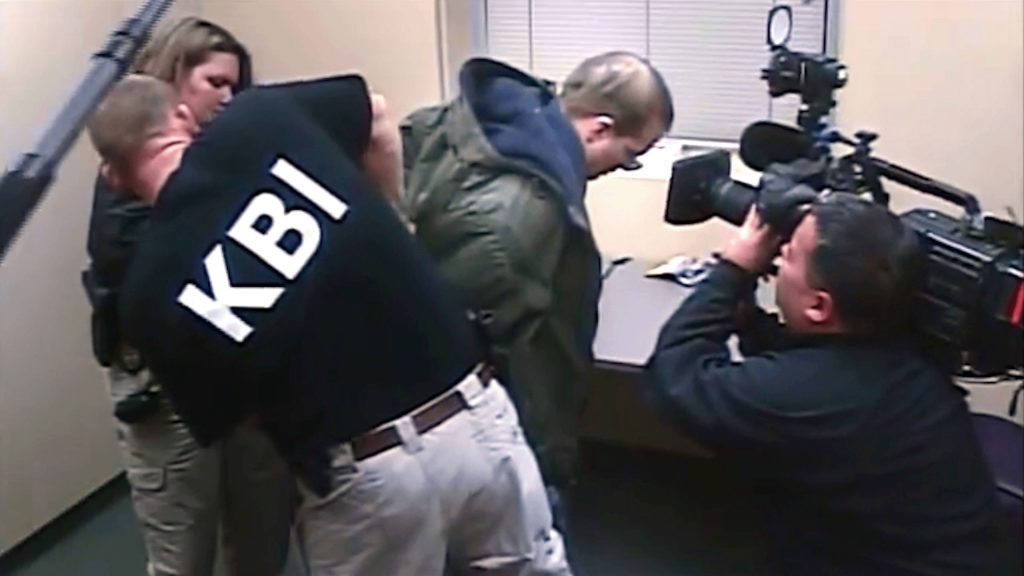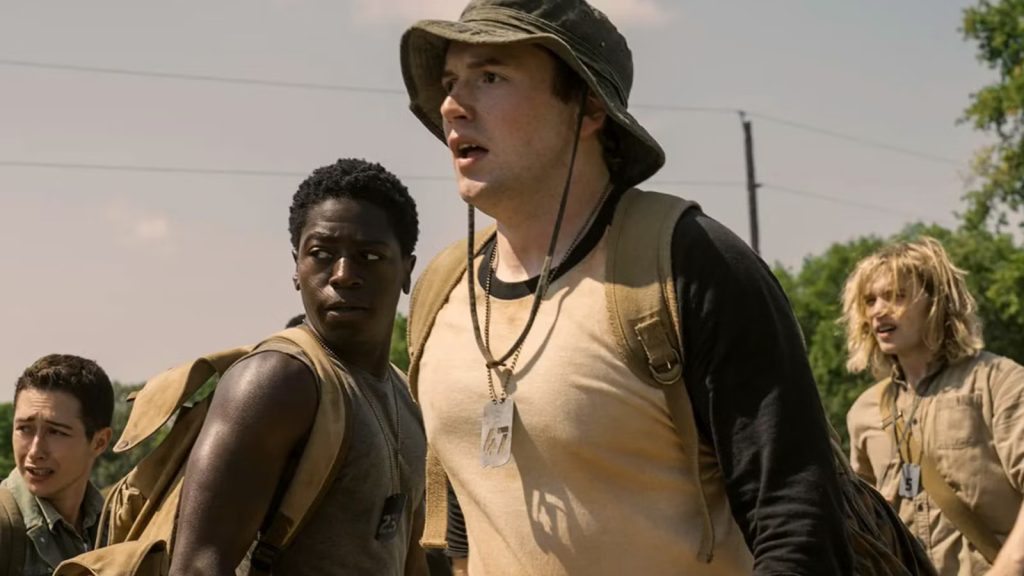“Ever since I was a kid, people told me my family was cursed,” Kevin Von Erich (Zac Efron) explains at the beginning of Sean Durkin’s The Iron Claw, and about two hours later, you’ll likely agree with them. The Von Erichs were a family of professional wrestlers, well-known and loved during that sport’s rise to cultural ubiquity in the late 1970s and early 1980s, who were beset by a series of tragedies, accidents, and suicides. Theirs is a sad story of perseverance in face of not only setbacks but good sense, fueled by a love for the game (and the crowds drawn to it), but mostly by a need to please an impossible man.
That man is their father, Fritz Von Erich (played by Mindhunter’s invaluable Holt McCallany), a wrestler himself back in the 1950s, briefly seen deploying the titular move during an artful opening fight in high-contrast black-and-white (Raging Bull much?). He raises his unruly brood of boys with a tough-as-nails demeanor and single-minded focus, manipulating them and pitting them (and his favor) against each other; he’ll rank his favorites, to their faces, all while insisting, “The rankings can always change!”
Their story is told primarily through the eyes of Kevin, father’s favorite early on, as the family builds a mini-empire in Dallas. “Mom tried to protect us with God,” he says. “Pop tried to protect us with wrestling.” That’s no doubt true, but Durkin also hones in on the gnarlier, bloodier details of the matches, which are frequently painful and hard to watch. Yet despite those flashes of discomfort, the first half of The Iron Claw is squarely about the family’s good times, the glory years; Pop may have been a pain in the ass, and mom (Maura Tierney) is an emotional absentee landlord, but the brothers have each other. A “Don’t Do Me Like That” needle drop is deployed as a shot of pure joy, a sweet romance develops between Kevin and a headstrong local girl (Lily James, who has a lovely, lived-in chemistry with Efron), and Mátyás Erdély’s cinematography evokes the mellow, sun-kissed vibe of youth movies of the era.
Durkin’s filmography to date is slim but impressive; the mere thought of Martha Marcy May Marlene still gives me goosepimples, and his tightly-coiled follow-up The Nest was one of the more unfortunate cinematic casualties of the COVID-19 lockdown. He’s a genuinely gifted filmmaker, with an unerring sense of when and how to come into a scene, and a way of finding an image appropriate to his story’s milieu, and holding it long enough to say more than any dialogue could (for example, a late sequence of Kevin bouncing between the ropes, and hitting the mat over and over). He has a genuine mastery of letting camera inform narrative, and vice versa, rather than tackling them as separate entities; it’s most demonstrably present in the slow, steady push in from a wide to medium shot as Fritz delivers an ultimatum and proclamation in the ring, while slyly and devastatingly announcing a shift in the family’s priorities in the process. He doesn’t move the camera all that much, but when he does, it matters — like a late moment when we witness a potentially career-ending (life-ending, even) injury, yet only when the frame widens do we realize how few people were even there to see it.

The snag is in the storytelling. It’s easy to see what drew Durkin, a lifelong wrestling fan, to the stranger-than-fiction tale of the Von Erich curse. But once the bough breaks at the halfway mark, there’s so much tragedy that it diffuses any real dramatic tension. We’re just waiting for more bad things to happen; the necessary compression of events into a feature film’s length means that that’s all there’s time for. These incredibly dramatic lives become, oddly enough, undramatic cinema — because there’s no sense of surprise, just doomed inevitability. (In Durkin’s defense, it could have been worse; there was another brother who was omitted from this telling, whose life was yet another series of tragedies.)
“Why is this happening to us?” Kevin asks. “Why does it keep happening?” He’s right to ask, but by the end, the viewer may feel the same. Efron’s performance is a bit of a mixed bag; he compellingly and convincingly embodies the constant melancholy of the also-ran, the passed-over, the “good sport,” but when the time comes to do the heavy lifting at the end (literally, at one point) he just doesn’t quite have the chops. Efron is a divine presence in light comedies, and the world needs those too — it’s our loss that he’s decided he has to be a Serious Actor.
Durkin’s affection for this world is abundant. He’s clearly obsessed with all the ephemera, the broadcast bumpers and the like, the details of the “dramatic” piece of the TV wrestling puzzle, and those scenes have a loony authenticity of their own. Everyone in the cast gets at least one moment to shine; the one that will stick with me is an image of Tierney in the mirror, a tiny moment of losing her composure, only fleetingly. And Durkin takes a big unlikely swing in the coda that somehow lands, and could have decimated the entire picture if it hadn’t. But The Iron Claw’s considerable strengths just aren’t enough to paper over its fatal flaws. It’s an abundance of affecting moments that never quite cohere.
B-
“The Iron Claw” is in theaters everywhere Friday.



